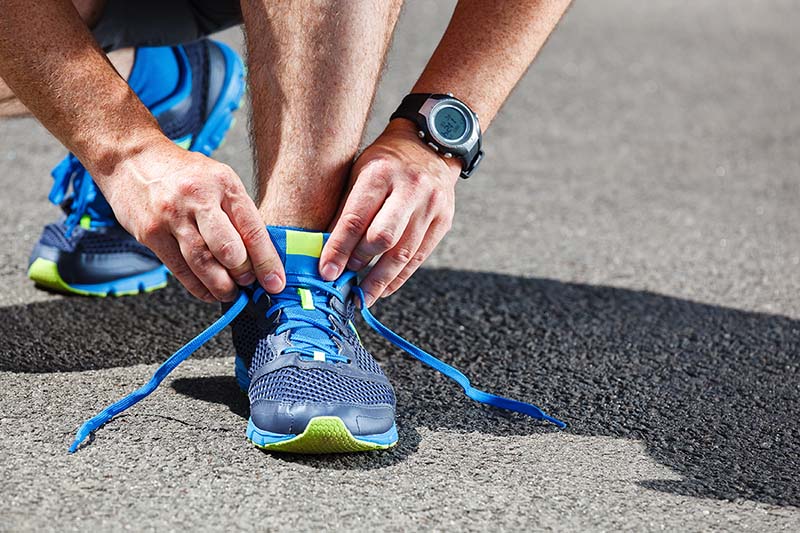Understanding Urinary Incontinence
Preventing and treating urinary incontinence should be a priority for a healthy life.

Urinary incontinence affects millions of people, but it’s not talked about as much as it should be. While it’s more common with age, it’s not a normal part of aging.
Understanding the Different Types of Urinary Incontinence
There are several different kinds of urinary incontinence, like:
- Stress Incontinence: Leaks happen during physical activity like coughing, laughing, or exercising due to pressure on the bladder.
- Urge Incontinence: A sudden, intense urge to urinate and sometimes with little warning can lead to accidents.
- Overflow Incontinence: The bladder doesn't empty fully, causing frequent dribbling or constant leaking.
- Functional Incontinence: Physical or cognitive challenges make it hard to reach the bathroom in time, even with normal bladder function.
- Mixed Incontinence: A combination of stress and urge incontinence, with symptoms of both.
Many of these types have unique causes like, weak pelvic floor muscles, an overactive bladder, or a medical condition.
Causes of Urinary Incontinence and Possible Risk Factors
A variety of conditions can cause or contribute to urinary incontinence, like:
- Diabetes
- Being overweight or obese
- Certain neurological disorders
- Constipation
- Having a chronic cough
- Anxiety
Having one of these conditions doesn’t necessarily mean you’ll develop urinary incontinence, but taking preventive measures can significantly lower your risk.
Preventing Urinary Incontinence
Preventing urinary incontinence involves adopting healthy lifestyle habits and seeing a medical provider when necessary.
Here are some changes you can make today to reduce your risk of developing urinary incontinence:
- Stop smoking
- Maintain or reach a healthy weight
- Do pelvic floor exercises regularly
- Limit caffeine, alcohol, and acidic foods
- Eat more fiber-rich foods
There are also certain medications that can cause incontinence. Talk with your doctor about the side effects of medications you’re taking and if they might cause bladder leaks.
Urinary Incontinence Treatment Options
There are several treatment options ranging from at-home exercises to surgery. Your doctor will do a physical exam and run tests to determine what may be causing your incontinence.
Here are a few examples of what urinary incontinence treatment might look like:
Behavioral Techniques
Techniques such as bladder training and fluid management can help control symptoms. Bladder training involves scheduling bathroom visits and gradually increasing the time between them to improve bladder control.
Pelvic Floor Exercises
Regularly performing Kegel exercises can strengthen bladder control. These exercises can be done anywhere and can be effective in reducing incontinence.
Medications
Certain medications can help relax the bladder or tighten muscles. Medications such as anticholinergics or alpha-blockers can address different problems that may be causing or contributing to bladder leakage.
Medical and Surgical Treatments for Urinary Incontinence
For more severe cases, medical and surgical treatments may be necessary. Medical devices such as urethral inserts, pessaries, and catheters can provide relief.
Botox injections and bulking material injections can help manage symptoms. Botox can relax the bladder muscles, reducing urgency. Bulking agents can add volume to the urethra and help it stay closed, reducing leaks.
For more severe cases of urinary incontinence, procedures such as sling surgeries, prolapse surgeries, and artificial urinary sphincters can offer long-term solutions.
Talk to your Doctor About Bladder Health
Bladder issues are more common than you might think—and you don’t have to manage them alone. If you’re experiencing leaks, urgency, or changes in bathroom habits, schedule a visit with your doctor. Bring a bladder diary (tracking when you go, leaks, or triggers), a list of medications, and be ready to discuss any lifestyle changes. Here are some helpful questions to ask:
- What could be causing my bladder control issues?
- Are there treatments or lifestyle changes that could help?
- Could any of my medications be affecting my bladder?
- Should I see a specialist, like a urologist or physical therapist?
- Are there exercises I can do to strengthen my pelvic floor?
Resources for Urinary Incontinence
Urinary incontinence is common but treatable. Talk to your doctor about prevention, lifestyle changes, and treatment options.
Find a doctor online or contact Member Advocates at800-515-2220 weekdays, from 7:00 a.m. to 8:00 p.m., and Saturdays, from 9:00 a.m. to 2:00 p.m., closed Sunday. TTY users call 711.




